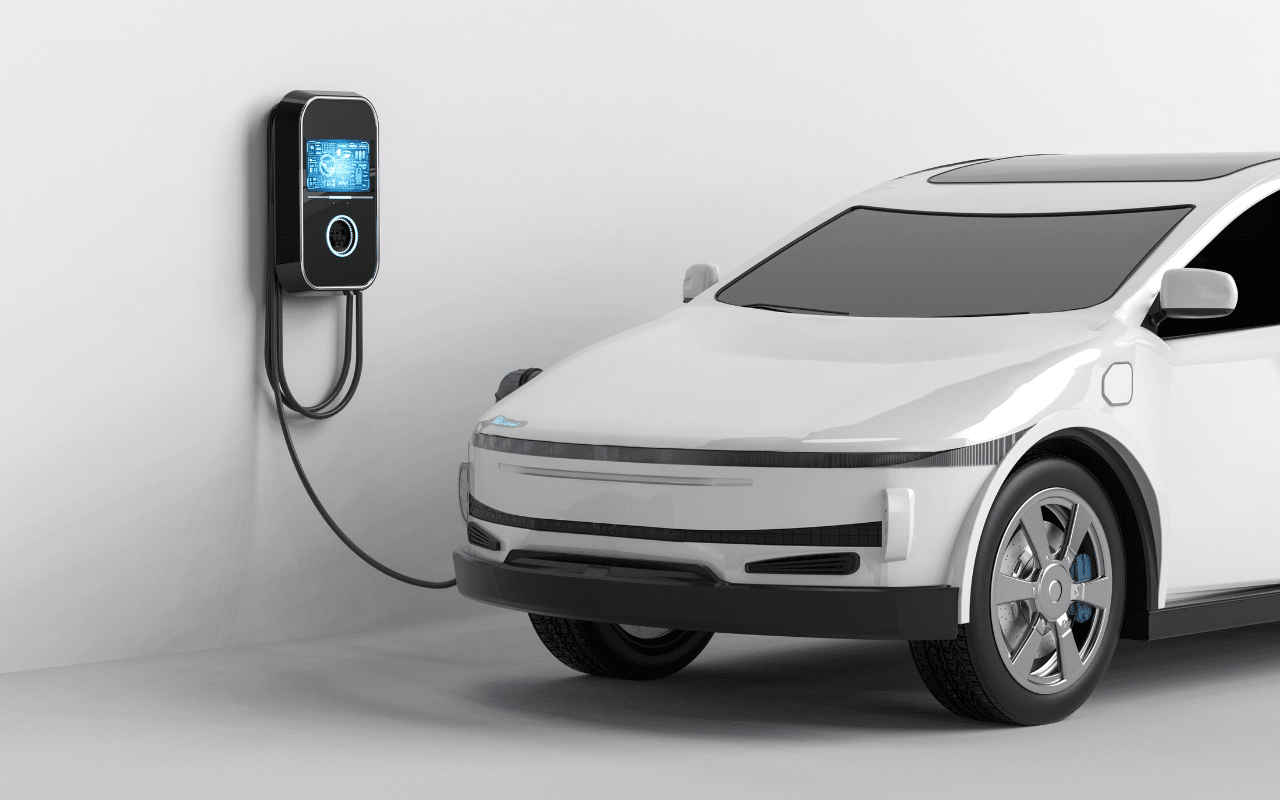

As the world grapples with the pressing need to reduce carbon emissions, electric vehicles (EVs) have emerged as a critical solution to transitioning toward a more sustainable transportation system. In Australia, the EV market is steadily growing, driven by an increased focus on sustainability, government policies, and a public desire to reduce environmental impact. But how do electric vehicles contribute to a sustainable future, and what will they play in Australia’s transportation landscape?

Electric cars are essential to a more sustainable future because they reduce greenhouse gas (GHG) pollution and our reliance on fossil fuels. In Australia, where transportation contributes approximately 18% of the nation’s total emissions, transitioning to EVs offers a tangible path toward reducing the country’s overall carbon footprint.
Unlike cars with internal combustion engines (ICEs), electric vehicles (EVs) don’t release pollution when driving. This means EVs don’t release pollutants like CO2, NOx, or particulate matter when moving. These pollutants are all bad for the environment and add to climate change. Electric cars will also be better for the earth because more and more of Australia’s energy will come from natural sources like the sun and wind.
Electric cars can help save energy and cut down on pollution at the same time. EVs are more energy-efficient than gasoline-powered vehicles, converting more electrical energy into vehicle movement. This efficiency means that less energy is used per kilometre of travel, which helps to reduce the total use of resources and lowers costs for consumers.
With its abundant sunshine, Australia is well-positioned to harness solar energy for powering electric cars, potentially integrating EVs with home solar systems and battery storage. Safety on the road also plays a crucial role in supporting this clean transition, as initiatives like Speed Humps Australia demonstrate the need for traffic control measures as EV usage increases.

Australians will benefit from introducing electric vehicles that go beyond protecting the environment in many ways. From economic development to public health, the shift to electric mobility is set to drive significant positive changes.
The growing EV market in Australia has the potential to generate significant economic opportunities. As the EV ecosystem expands, there will be increased demand for skills in industries like manufacturing, research, charging infrastructure development, and renewable energy integration. For example, domestic battery production, charging station installation, and grid management will create new jobs across various sectors.
Additionally, the widespread adoption of EVs can reduce Australia’s dependence on imported fossil fuels, keeping more money within the national economy and reducing vulnerability to global oil price fluctuations.
Less pollution from EVs can directly lead to better air quality, especially in cities with many people. In cities like Sydney, Melbourne, and Brisbane, lower levels of air pollution would decrease the incidence of respiratory illnesses and cardiovascular diseases, leading to better public health outcomes. Studies have shown that air pollution from car emissions is a significant cause of health problems worldwide. Any decrease in these pollutants can have a massive effect on public health.
Electric vehicles are notably quieter than their ICE counterparts, contributing to reduced noise pollution in urban areas. This is particularly important in cities where traffic noise can negatively affect residents’ quality of life. EVs can contribute to more peaceful, livable environments by reducing noise levels.
With growing concerns about road safety, there has been increasing debate over the effectiveness of traffic control measures, including speed enforcement. A common question in this context is: Do Speed Cameras Reduce Accidents? The interaction between new technology in EVs and traditional safety measures will continue to shape future transport policies.

Several factors make electric transportation not just a short-term trend but also a future trend of mobility in Australia and beyond. These include technological advancements, government support, consumer demand, and the urgent need to tackle climate change.
Over the past decade, electric vehicle technology has advanced significantly. Improvements in battery technology have led to longer driving ranges, faster charging times, and lower costs. For instance, battery prices have fallen by around 90% over the past ten years, making EVs more affordable for everyday consumers. With continued investment and research, we can expect even more significant innovations to make EVs more accessible and practical for all Australians.
In addition to battery improvements, advancements in autonomous driving technology and intelligent transportation systems are expected to integrate seamlessly with electric vehicles. These technologies will revolutionise people’s travel, making transportation safer, more efficient, and environmentally friendly.
The Australian government has begun implementing policies to encourage the adoption of electric vehicles. Some of these are financial incentives, like tax breaks, rebates for buying electric cars, and investments in charging facilities to ensure drivers can access quick and easy charging points. Some states, such as New South Wales and Victoria, have introduced subsidies for EV buyers and policies to increase the number of electric buses and other public transportation options.
With government support growing, electric transportation will likely become the norm, driven by consumer choice and legislative mandates.
Australians are increasingly aware of the planet’s environmental challenges, and many seek ways to reduce their carbon footprints. Electric vehicles offer a viable option for eco-conscious consumers looking to make a sustainable choice. Surveys show that many Australians are considering purchasing EVs, and as more models come to market, this interest is expected to grow.
As consumers demand more sustainable products, automakers and technology companies will continue to develop EVs that are not only environmentally friendly but also competitive in terms of performance, design, and affordability.
The future impact of electric vehicles on Australia’s transportation sector will be profound, with far-reaching consequences for the environment, economy, and society.
As Australia works toward its commitment to achieving net-zero emissions by 2050, adopting electric vehicles will play a pivotal role. According to estimates, if EVs account for 100% of new car sales by 2030, Australia could reduce its annual carbon emissions by millions of tonnes, significantly contributing to the nation’s climate goals.
Connecting renewable energy to the grid will also be helped by making vehicles electric. Using EVs as mobile energy storage units can stabilise the grid, and renewable energy can be utilised more efficiently.
As the number of EVs on Australian roads increases, there will be a corresponding need for investment in charging infrastructure. The rollout of fast-charging networks and the integration of smart grid technology will enable seamless electric vehicle usage, even for long-distance travel across Australia’s vast landscape.
EVs will also affect city planning, as towns must build infrastructure that works with EVs, like charging stations in neighbourhoods, workplaces, and public areas. This change will change how cities in Australia look and feel, making them more sustainable and able to handle climate change.
The shift to electric vehicles also coincides with improvements in traffic management systems when fines are issued due to infractions; resources like Traffic Fines Queensland: What to Do if You Receive a Fine offer helpful advice on how to handle such issues, which may become more prevalent as EV adoption rises and new regulations are enforced.
Australia’s shift towards electric vehicles will impact the domestic market and contribute to global sustainability efforts. As the world’s nations work together to meet international climate targets, Australia’s success in adopting EVs could serve as a model for other countries with similar geographical challenges and reliance on fossil fuels.
The future of sustainable transportation in Australia lies in the widespread adoption of electric vehicles. EVs can help Australia lower its carbon impact, improve public health, boost economic growth, and make a big difference in the fight against climate change worldwide. With technological advancements, government support, and consumer demand driving the transition, electric transportation is undoubtedly the way forward for a cleaner, greener Australia.



For 10 years, our focus has been on one thing: to provide one style of product and to do it well.
Our wheel stops, speed humps and rumble bars meet Australian Standards, don’t fade, and we’ve never needed to replace one.

For 10 years, our focus has been on one thing: to provide one style of product and to do it well.
Our wheel stops, speed humps and rumble bars meet Australian Standards, don’t fade, and we’ve never needed to replace one.